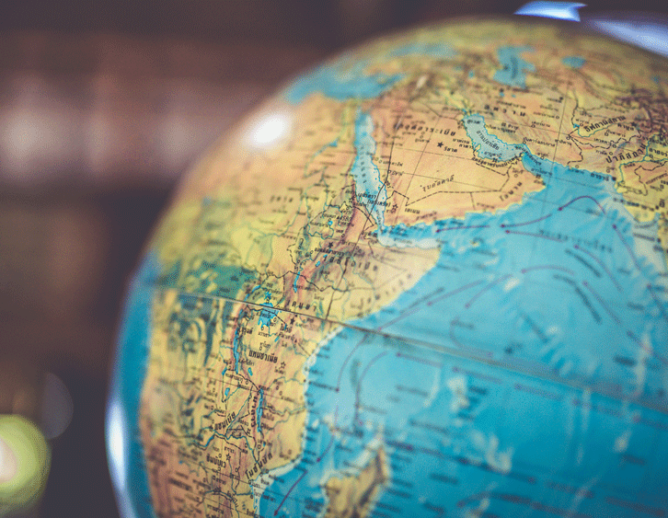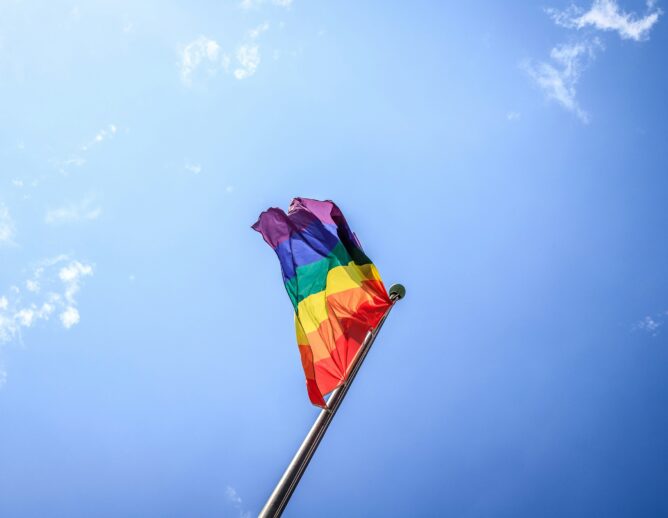
Sometimes do you feel a need to say something because an injustice calls out to you, demands your voice, all our voices, however much our calls may be lost in the din? Such was my feeling when reading about the world’s yawn in response to one of the world’s worst humanitarian crises, a famine that has gripped Borno State in northeast Nigeria, along with neighboring areas of northeast Nigeria, as well as in Cameroon, Niger, and Chad.
The famine is the result of the brutal terrorist insurgency Boko Haram. Though Nigerian and allied military forces from the region have regained most of the territory that Boko Haram had captured, the mass displacement forced farmers from their fields. Farms have been destroyed and mined, and water sources contaminated. The food shortages have pushed prices up in local markets. The insecurity prevents aid from reaching many in need. Boko Haram fighters have stolen cattle and other farm animals. This comes atop last year’s low rainfall and depleted water tables, along with the country’s recession. The depth of the crisis is also being revealed as the Nigerian military has pushed back Boko Haram, exposing the desperate realities that people in the region have been suffering through for months, or even years.
By August, the UN estimated that more than 18 million people in the region faced food insecurity, including 4.4 million facing “emergency” or “crisis” conditions, and at least 65,000 famine conditions. The deaths have already begun, with the mortality rate in an internally displaced persons camp in Borno State’s capital now five times emergency levels. UNICEF has warned that 75,000 children may die of hunger over the next year unless funds are forthcoming.
A story in The New York Times alerted me to the scale of the crisis. “Boko Haram Rages in Nigeria, but World’s Eyes Are Elsewhere,” read the headline. The piece observes, “For the West, Boko Haram’s victims are easy to overlook. The militants target some of the poorest people on the planet.…Most of the victims live in such poverty that, even without the challenges of the insurgency, their lives would play out on the margins, scraping by for survival.” Overlooked, with the killing or without.
The world is hardly ignorant to the food crisis borne of Boko Haram terrors, with coverage from the Times and other media outlets (for example, NBC via the Associated Press, Reuters, and AFP). The U2’s long-time social justice campaigner Bono, who serves as an ambassador for the UN High Commissioner for Refugees, was in Borno State in late August.
As of mid-September, the 2016 UN humanitarian appeal for the region of $739 million was only one-quarter funded. A September 23 high-level conference alongside the UN General Assembly meetings led to pledges that covered only one-third of the remaining gap. Some $379 million, half the total required this year, remains orphaned. The gap appears to be growing; on September 29, UNICEF increased its appeal from $55 million to $115 million, which would appear to bring the overall shortfall to $439 million.
How can the world possibly fail to find $379 million or $439 million for some of our most desperate, traumatized neighbors? That represents about 0.0005% or 0.0006% of the global economy. Yes, there are other crises around the world, other life-saving programs that need more funding too. And yes, that we have reached this point represents deep and persisting failures that led to people of the region living on the edge in normal times, and that enabled Boko Haram to take hold – among them corruption, poverty, and human rights violations of the Nigerian security forces. But how can the will be missing to take this immediate step to stop the life from further flowing out of this open wound? Can the world’s wealthiest economies – or Nigeria itself, or the world’s wealthy classes – really not come up with this amount?
The solution is simple enough. Just as the United Nations, World Health Organization, and other international organizations have assessed finances, where their budgetary needs are paid according to set formulas from their member states, the same approach is needed for UN humanitarian appeals. While the process would be a bit more complicated – the pre-planning that is possible for regular organizational budget is more difficult for humanitarian crises, where funding needs may suddenly emerge and change as conditions on the ground evolve (the UNICEF appeal increase being a case in point) – it would secure the necessary funding. The persisting shortfalls make a mockery of human rights, of the Sustainable Development Goals, of all the commitments to do good in the world. If commitments to human rights and global goals are to have any meaning, it must be that the world is not silent as people suffer so.
In another part of the world last week, a dreamer and personal hero of mine, former Israeli Prime Minister and President Shimon Peres, died. He was a dreamer, an advocate for peace to his final days, even as peace seemed ever more distant. He was a committed optimist, convinced that tomorrow would be better than today. He once related the following:
Sometimes people ask me, “What is the greatest achievement you have reached in your lifetime or that you will reach in the future?” So I reply that there was a great painter named Mordecai Ardon, who was asked which picture was the most beautiful he had ever painted. Ardon replied, “The picture I will paint tomorrow.” That is also my answer.
My picture of tomorrow? Let us turn images like this:

Into this reality instead:

In Nigeria, and all over the world.
Shimon Peres himself evolved. Over the past decades, he believed and worked fervently for peace, but it was not always thus. Can we evolve too, from a society that allows the most inhumane of situations to persist under our watch to one that seizes upon human rights, justice, compassion, and humanity as our guides? Can we find within ourselves and our society a 93-year-old’s belief that tomorrow can be better than today – and make it so? Or for that matter, can we find within ourselves the humanity of a 6-year-old child (watch!).



